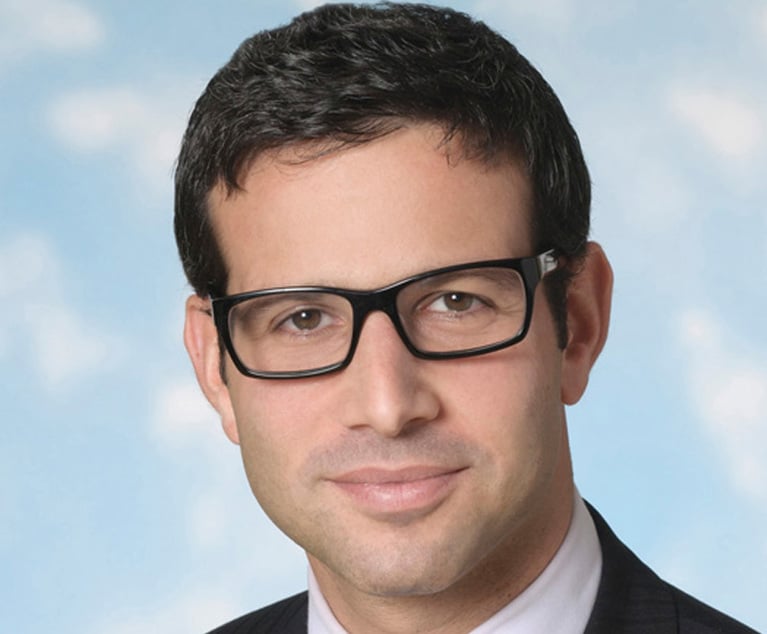Lifetime Achievement: G. Michael O'Leary, Hunton Andrews Kurth
G. Michael O'Leary has an extensive corporate securities and mergers and acquisitions practice that is focused on the energy industry. He also has a significant reputation in master limited partnerships.
August 31, 2018 at 06:00 AM
3 minute read
 Mike O'Leary of Hunton Andrews Kurth.
Mike O'Leary of Hunton Andrews Kurth.
Mike O'Leary has an extensive corporate securities and mergers and acquisitions practice that is focused on the energy industry. He also has a significant reputation in master limited partnerships. In 1983, O'Leary was a young associate involved in the first MLP created through an underwritten initial public offering—Transco Exploration Partners, Ltd. This new corporate structure allowed the securities of limited partnerships to trade on public stock exchanges while still maintaining control of the entity through its general partner and benefiting from the tax treatment as a partnership. As MLPs grew in popularity, O'Leary found himself working on the vast majority of MLP matters.
What's the biggest change you've seen in the profession during your career?
When I first started, transactions that were $10-$20 million were considered large transactions. They would typically take weeks to negotiate, would involve several face-to-face meetings with the counterparties and their advisers, and would take several weeks to close. Today, multi-billion dollar transactions are commonplace and negotiations are often conducted and completed without any face-to-face meetings. Turnaround on comments to documents is typically within 24-72 hours of receipt, and there is not a lot of time to reflect on issues—instead there is a premium on identifying issues and deciding on a response with your client in a short period.
What is one thing about the profession that has remained unchanged over the years?
On the transactional side of the practice of law, one constant is that transactions are more of a collaboration on behalf of a client with the counterparty and its advisors to reach a mutually agreed terms. It is not an adversary practice, although each transaction often involves tense discussions and negotiations. One important item for transactional lawyers to bear in mind is that over the course of a career you will likely work across the table from the same lawyers many times—preserving your reputation as a thoughtful, honest and creative lawyer when representing your clients will be important to a long, successful career.
What is one piece of advice you would give someone entering into the profession that you wish you had as a young lawyer?
Clients tend to prefer a transactional lawyer that is not only knowledgeable in the practice area for which the client has engaged the lawyer, but also someone who knows when other lawyers with specialized expertise are needed to address particular facets of a transaction.
This content has been archived. It is available through our partners, LexisNexis® and Bloomberg Law.
To view this content, please continue to their sites.
Not a Lexis Subscriber?
Subscribe Now
Not a Bloomberg Law Subscriber?
Subscribe Now
NOT FOR REPRINT
© 2025 ALM Global, LLC, All Rights Reserved. Request academic re-use from www.copyright.com. All other uses, submit a request to [email protected]. For more information visit Asset & Logo Licensing.
You Might Like
View All
Kirkland's Daniel Lavon-Krein: Staying Ahead of Private Equity Consolidation

Vinson & Elkins: Traditional Energy Practice Meets Energy Transition
4 minute read
Advising 'Capital-Intensive Spaces' Fuels Corporate Practice Growth For Haynes and Boone
4 minute read
Get to Know Texas Lawyer's Attorney of the Year Finalists
Trending Stories
- 1Uber Files RICO Suit Against Plaintiff-Side Firms Alleging Fraudulent Injury Claims
- 2The Law Firm Disrupted: Scrutinizing the Elephant More Than the Mouse
- 3Inherent Diminished Value Damages Unavailable to 3rd-Party Claimants, Court Says
- 4Pa. Defense Firm Sued by Client Over Ex-Eagles Player's $43.5M Med Mal Win
- 5Losses Mount at Morris Manning, but Departing Ex-Chair Stays Bullish About His Old Firm's Future
Who Got The Work
J. Brugh Lower of Gibbons has entered an appearance for industrial equipment supplier Devco Corporation in a pending trademark infringement lawsuit. The suit, accusing the defendant of selling knock-off Graco products, was filed Dec. 18 in New Jersey District Court by Rivkin Radler on behalf of Graco Inc. and Graco Minnesota. The case, assigned to U.S. District Judge Zahid N. Quraishi, is 3:24-cv-11294, Graco Inc. et al v. Devco Corporation.
Who Got The Work
Rebecca Maller-Stein and Kent A. Yalowitz of Arnold & Porter Kaye Scholer have entered their appearances for Hanaco Venture Capital and its executives, Lior Prosor and David Frankel, in a pending securities lawsuit. The action, filed on Dec. 24 in New York Southern District Court by Zell, Aron & Co. on behalf of Goldeneye Advisors, accuses the defendants of negligently and fraudulently managing the plaintiff's $1 million investment. The case, assigned to U.S. District Judge Vernon S. Broderick, is 1:24-cv-09918, Goldeneye Advisors, LLC v. Hanaco Venture Capital, Ltd. et al.
Who Got The Work
Attorneys from A&O Shearman has stepped in as defense counsel for Toronto-Dominion Bank and other defendants in a pending securities class action. The suit, filed Dec. 11 in New York Southern District Court by Bleichmar Fonti & Auld, accuses the defendants of concealing the bank's 'pervasive' deficiencies in regards to its compliance with the Bank Secrecy Act and the quality of its anti-money laundering controls. The case, assigned to U.S. District Judge Arun Subramanian, is 1:24-cv-09445, Gonzalez v. The Toronto-Dominion Bank et al.
Who Got The Work
Crown Castle International, a Pennsylvania company providing shared communications infrastructure, has turned to Luke D. Wolf of Gordon Rees Scully Mansukhani to fend off a pending breach-of-contract lawsuit. The court action, filed Nov. 25 in Michigan Eastern District Court by Hooper Hathaway PC on behalf of The Town Residences LLC, accuses Crown Castle of failing to transfer approximately $30,000 in utility payments from T-Mobile in breach of a roof-top lease and assignment agreement. The case, assigned to U.S. District Judge Susan K. Declercq, is 2:24-cv-13131, The Town Residences LLC v. T-Mobile US, Inc. et al.
Who Got The Work
Wilfred P. Coronato and Daniel M. Schwartz of McCarter & English have stepped in as defense counsel to Electrolux Home Products Inc. in a pending product liability lawsuit. The court action, filed Nov. 26 in New York Eastern District Court by Poulos Lopiccolo PC and Nagel Rice LLP on behalf of David Stern, alleges that the defendant's refrigerators’ drawers and shelving repeatedly break and fall apart within months after purchase. The case, assigned to U.S. District Judge Joan M. Azrack, is 2:24-cv-08204, Stern v. Electrolux Home Products, Inc.
Featured Firms
Law Offices of Gary Martin Hays & Associates, P.C.
(470) 294-1674
Law Offices of Mark E. Salomone
(857) 444-6468
Smith & Hassler
(713) 739-1250






